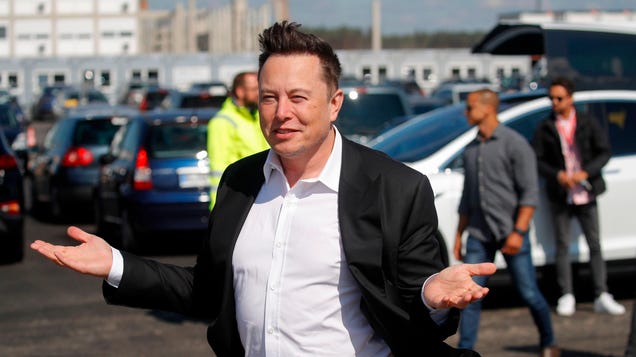Tesla’s Controversial Sick Leave Policy: A Deep Dive into Employee Rights and Corporate Culture
Understanding Tesla’s Approach to Sick Leave
Tesla has made headlines recently for its unconventional approach to managing employee absenteeism at its gigafactory in Germany. The company has taken the drastic step of sending management to the homes of employees who call in sick, ostensibly to verify the legitimacy of their claims. This policy raises significant questions about employee rights, corporate culture, and the balance between productivity and personal well-being.
The rationale behind this approach seems rooted in Tesla’s commitment to maintaining high productivity levels. However, it also reflects a broader trend in corporate America where companies are increasingly scrutinizing employee absenteeism. According to a 2022 report by the Society for Human Resource Management, absenteeism can cost employers up to $3,600 per year for each hourly worker. While the financial implications of absenteeism are undeniable, the methods used to address it can significantly impact employee morale and trust.
The Impact on Employee Morale
Employees at Tesla’s gigafactory have expressed their outrage over this invasive policy. Reports indicate that many workers have reacted by slamming doors in the faces of management representatives who show up unannounced. This response underscores a critical issue: the erosion of trust between employees and management. When workers feel that their privacy is being invaded, it can lead to a toxic work environment, decreased job satisfaction, and ultimately, higher turnover rates.
A study published in the Journal of Occupational Health Psychology found that perceived organizational support is crucial for employee well-being. When employees feel supported by their employer, they are more likely to be engaged and productive. Tesla’s current approach, however, may have the opposite effect, leading to feelings of resentment and distrust among workers.
Legal and Ethical Considerations
From a legal standpoint, Tesla’s actions may tread a fine line. In many countries, including Germany, labor laws protect employees from invasive monitoring practices. The German Federal Labor Court has established that employees have a right to privacy, which includes the sanctity of their homes. If Tesla’s management continues to visit employees’ homes without consent, it could face legal repercussions.
Moreover, ethical considerations come into play. Companies are increasingly held accountable for their treatment of employees, and public perception can significantly impact a brand’s reputation. Tesla, known for its innovative technology and forward-thinking approach, risks damaging its image by adopting such a heavy-handed policy. A 2021 survey by Edelman found that 86% of employees believe that a company’s treatment of its staff is a reflection of its overall values. If Tesla is perceived as prioritizing productivity over employee well-being, it could face backlash from both current and potential employees.
Alternative Approaches to Managing Absenteeism
Rather than resorting to invasive measures, companies can adopt more supportive strategies to manage absenteeism. For example, implementing flexible work arrangements can help employees balance their personal and professional lives, reducing the likelihood of calling in sick. A 2023 study by the Harvard Business Review found that organizations offering flexible work options saw a 25% decrease in absenteeism.
Additionally, fostering a culture of open communication can encourage employees to be honest about their health issues without fear of retribution. Regular check-ins and wellness programs can also promote a healthier workforce, ultimately benefiting both employees and the company.
Learning from Industry Best Practices
Several companies have successfully navigated the challenges of absenteeism without resorting to invasive practices. For instance, Google has implemented a comprehensive wellness program that includes mental health resources, fitness classes, and flexible work hours. This approach not only supports employee well-being but also enhances productivity and job satisfaction.
Similarly, Salesforce has prioritized employee mental health by offering paid time off for mental health days. This policy not only acknowledges the importance of mental well-being but also fosters a culture of trust and support within the organization.
The Future of Employee Relations at Tesla
As Tesla continues to grow and evolve, it must reconsider its approach to employee relations. The company has the potential to lead the way in creating a supportive work environment that values employee well-being alongside productivity. By adopting more compassionate policies, Tesla can enhance employee morale, reduce turnover, and ultimately drive greater success.
In conclusion, while Tesla’s decision to verify sick leave claims may stem from a desire to maintain productivity, it raises significant concerns about employee rights and corporate culture. By learning from industry best practices and prioritizing employee well-being, Tesla can foster a more positive work environment that benefits both its workforce and its bottom line.

